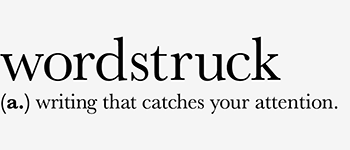I was in Dublin at the beginning of last week, doing a couple of writing workshops. The fact that people there were about to vote on the issue of gay marriage was inescapable. It seemed there were posters on every lamp post as I travelled into the city, reflecting both sides of the campaign. Even though it wasn’t my vote, just being there felt like being somewhere on the verge of change. It was exciting, and that sense of exhilaration continued as I heard the results of the vote back in the UK.
There are a lot of changes happening in the company I work for at the moment too. Change is happening quickly, and that’s both exciting and a little unnerving. Because I’m seeing and hearing ideas expressed in language that doesn’t quite sound the same as it did before, and at the moment I don’t know the reasons behind that.
It means that in one of those recent training sessions, I didn’t have an answer for a very pertinent question, and had to admit, I didn’t know. Now, I’m not afraid of saying “I don’t know”. But I hope I say it with confidence that I will in time find out.
As I’ve also been working on ideas for a leadership event, it got me thinking about all the times that people have done amazing, wonderful and inspirational things that no one knew they could do until they did them.
Take the events of 6 May 1945 for example, when Roger Bannister became the first man to run a mile in under four minutes. At the time, four minutes was such a barrier that people even questioned whether it was humanly possible to break it. But at Iffley Road sports ground in Oxford, paced by Chris Brasher and Chris Chataway, Roger Bannister was the first. And since then the record has been broken many times.
Like so many groundbreaking events, the four minute mile was partly a matter of building on what had gone before, learning from successful training techniques and seeking to make the best use of the technology available. Bannister’s track spikes were lighter than those of his contemporaries. Did they give him the advantage that broke the barrier? Hard to say, but those historic shoes are now themselves up for auction.
But as much as the technology of marginal gains and the discipline of training and testing for a challenge, I think there’s also an important element of belief involved in achieving success too. I know from my own running that sometimes the biggest barrier is a mental one. That if you think something is too difficult, then you’re more than half way to talking yourself out of being able to achieve it.
Sometimes you just have to believe in something bigger, to strive to make it happen. That’s what I sense when I think about massive achievements like the Moon landings and John F Kennedy famously saying “We choose to go to the Moon in this decade and do the other things, not because they are easy, but because they are hard.”
All that’s before my personal history, but I still have a sense of the huge risks involved in mankind’s giant leap. But I remain hopeful and optimistic that we, as human beings, can achieve many more leaps forward, in science, technology, sport and understanding. And as a massive science-fiction geek, I really hope I’ll be around long enough to see that first Mars landing.


Comments are closed.